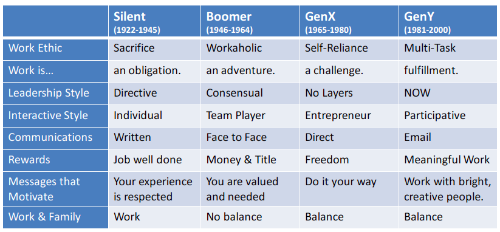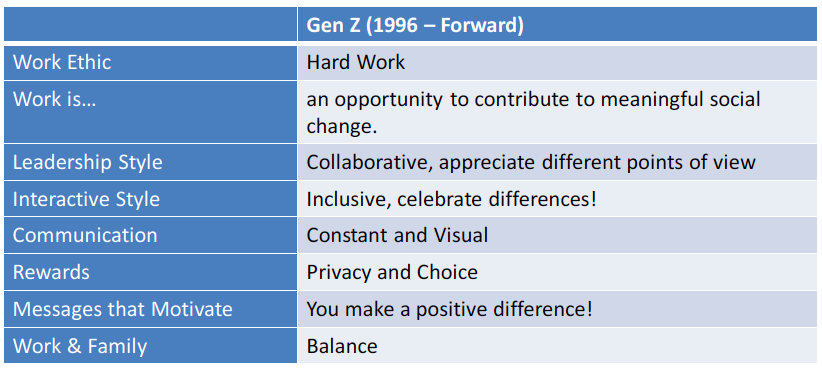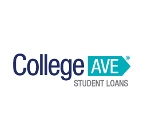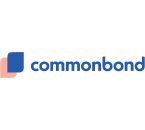Cross-Generational Competence: How to Get Multi-Generations to Work Together Effectively, 11:30 am - 12:30 pm
By Erin Powers, Communications Staff
For the first time, four generations are present in the workplace. Late traditionalists and baby boomers are rubbing elbows on a daily basis with Gen-Xers and Millennials. Each generation approaches work from a different perspective, so the challenge is to get them to all work together toward a common goal.
Each generation represented in the workforce is a product of their environment. What was happening in the country—and globally—at the time they were growing up has shaped each generation’s work ethic and attitudes, leadership style, interaction style, communications style, sentiments about work, and motivation.
Presenters shared the following charts to help attendees gain an understanding of typical characteristics for each generation.


Each generation has a unique perspective to bring to the table. The key is to listen, to educate yourself about where others are coming from and how they prefer to interact, and ultimately to utilize each others' strengths for the advantage of the office as whole. Tech-saavy Milennials may be able to help others in the office to leverage social media to better communicate with students, whereas older generations can contribute historical perspective (what has worked in the past and why, and what hasn't).
"You've got every single skill when you've got all the generations represented," Brenda Hicks of Southwestern College told attendees. Having individuals with a diverse set of skills is advantageous for any office. It’s a plus, not an obstacle to have individuals with varying levels of comfort with new technology, different communication techniques and strategies, experience with mentoring, etc.
Publication Date: 6/28/2017












You must be logged in to comment on this page.